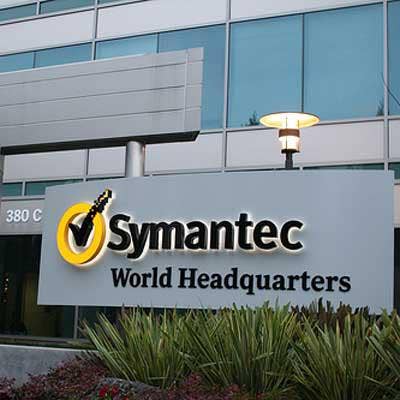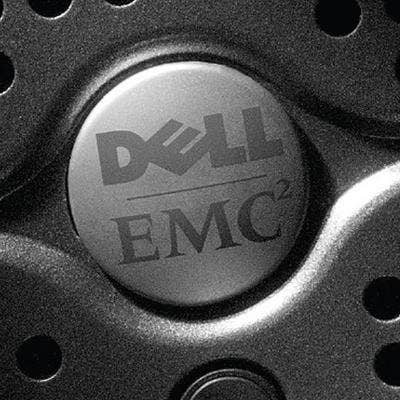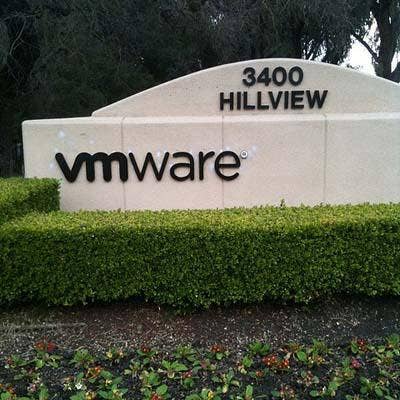CRN Exclusive: Veritas CEO On New Strategy, Competitors, And Independence From Symantec

Veritas' Post-Symantec Vision: Information Management Without The Hardware Vendor Lock-in
On Jan. 29 of this year, Veritas Technologies became an independent data protection and management company after 11 years as a part of Symantec, which acquired the company in 2005. That independence came by way of an acquisition by Washington, D.C.-based investment firm Carlyle Group. Symantec executives and partners told CRN multiple times that that 11-year period was a difficult time for the company's storage business, which never was integrated into Symantec.
Last week's Veritas Vision, the first since Veritas became independent, was the company's chance to show how things have changed since its Symantec days. And the changes were significant. Veritas showed that it had stepped away from a tight focus on protecting and managing data to embrace a forward-facing strategy focusing on information management.
One of the most vocal proponents of the new Veritas was CEO Bill Coleman, who sat with CRN during Veritas Vision to discuss the company's strategy and future.
Here is what Coleman had to say about the new Veritas.

Talk about some of the changes Veritas has gone through since becoming an independent company.
Symantec really didn't have a long-term strategy [for Veritas] or a vision of where the market was going to go. [Now] we can have a real vision and strategy and roadmap on where we're going in the next five years. …
While we've reorganized the company in the mode of an independent company, we've brought together all the channel and field organizations into one organization under [President of Worldwide Field Operations] Matt Cain. Ana Pinczuk has stood up to be the [chief product officer]. So we have a whole new leadership team. The only person on the team that's doing the same job he was doing seven months ago is our CIO Todd Hauschildt.
So I'm very happy with where we are today. I'm excited about where we're going.

After it was acquired by Symantec, Veritas often suffered from a perception that it stepped back from the market. Why should we now all of a sudden believe Veritas is different, better than it was back then?
I think that Symantec didn't have a long-term strategy, but that didn't mean that in all our product areas we weren't keeping up and leading the market. I think the Veritas part of Symantec was slow to move into some of the cloud areas, and that's where they left the flanks open to a couple of the midsize [competitors]. I think those are easy to close. But we really haven't lost enterprise customers or their main tier-one assets.
I love tough questions when you ask them.

The Veritas of 2016 is facing a much different business environment than the Veritas of 2005, when it was acquired by Symantec, with a raft of new competitors like Veeam that weren't in existence at the time. So why should people care about Veritas?
The first reason to care about Veritas is, we're still No. 1 in the information management marketplace. We still have the largest customer base. We have very solid products: the most heterogeneous, the most saleable. And of the large vendors, we're the only software company. The rest are all hardware companies, with their own legacy baggage to carry along with them and try to strap the customers into them. In that case, things haven't changed a lot.
What's really changed, and we're in the midst of it accelerating, is the move to cloud, the move to SaaS, the move away from the Capex model into subscription and consumption models. … We're covering all those bases.

How about the competitors?
You have to really sort of understand the details. There are the large incumbents, and it's primarily us, second it's EMC, and third it's IBM. We're talking about in enterprise accounts. There are smaller companies that are trying to get into the enterprise. The Veeams and the Commvaults and their like in the world have done fairly well in small to medium-sized businesses. And they have some momentum in cloud, particularly with snapshotting in the cloud and with virtualized loads. And that's fine.
As part of Symantec, I don't think this company was fast enough to move there. So we're rectifying that part of it. But that's not the future.

What is the future?
The future is to move above information management into being able to exploit the information for business value.
Here's what I think. [That is our future] platform. I think it has three characteristics. … The first is software-defined storage to free our customers from having to depend on the other large guys. The other part of that is to give them visibility and access to all their data no matter where it is. The second is policy and workflow. And that is to give them the control, management and automation of all their information throughout their life cycle, no matter where it is. The third is a metadata repository for all their information, and the programing environment that would open APIs that would allow third parties to access that metadata, maybe even anonymized, in conjunction with any other data a customer wants to exploit to do things like predictive analytics and machine learning.

How can Veritas win with that platform?
This is going to be a transformation. [When Veritas was looking to be spun out of Symantec,] we had McKinsey interview 300 of our enterprise CIOs in blind interviews. And 85 percent said within a few years they're going to adopt that kind of a platform. They want to be totally independent of hardware.
[Because information management] is not a disruption, the economics are not so overwhelming that customers are going to walk away from what they have, throw it away, and spend $50 million on something else and get it going. They're going to adopt it in their own pace. As long as we're good enough, we get to win.
The asset that's important is the tier-one and -two, particularly tier-one, enterprise mission-critical data. That means there's only three incumbents: there's us, there's IBM, and there's EMC. And we get to win that battle because we're the only software company.

I think EMC and IBM would disagree to your saying Veritas is the only software company. EMC under Dell is going to go straight for software-defined. …
Right. And they're going to stop selling their hardware? … So you think [Dell CEO] Michael Dell is going to give up 70 [percent] to 80 percent of EMC's revenue when he has to pay off $62 billion in debt? He didn't do this for customers. He didn’t do this for employees. He did this because, even though both [companies'] markets are [going to] decline, he can pay off debt faster. And the only winners there are Michael Dell and [his investment partner] Silver Lake. He's not [goiing to] walk away from 70 [percent] to 80 percent of [his revenue].
You know, I had one of our biggest customers, one of the biggest banks on Wall Street, tell us, "As soon as I put in that control plane, I'm never [going to] buy another SAN from EMC." The minute they put that in, [EMC loses] all revenue except the software.

But the software is the profitable part of the revenue. …
You don't think they're making profit off their hardware?
They are. And there's a chance they'll make better profit on the hardware because EMC will actually [have the Dell] hardware part.
So why isn't software-defined networking going crazy? It's because there is no Veritas in the networking industry.

VMware. …
No, VMware doesn't own the asset. Nobody is going to say, 'Oh, I'm [going to] throw all my enterprise stuff out into the cloud on VMware. They're not going to say, let's get all that OLTP [online transaction processing] and give it up to them and let them manage it in the cloud. [VMware doesn't] own the asset. They don't have any place to start with.
If there was a Veritas in the networking business, that was No. 1 or No. 2 with respect to Cisco, they'd be going out of the hardware business faster than they could possibly afford. IBM in their storage side, and EMC in their storage side, are going to give every kind of lip service to how great all their software-defined storage is. And then they're going to sell their legacy stuff.

Can you give a specific example?
I happen to be on the board of trustees of Santa Clara University. I got on the IT committee because of that. We just went through a whole thing to replace all the networking. Cisco won based on their software-defined networking. But they had to do it all the way through, and say, "We have to put this in today, which is all the legacy stuff, so that we can give you the path, the foundation, to get you there." I believe that's going to be an anchor on them moving fast enough. But whether it is or isn't, I intend to out-innovate them.
IBM is way behind with Tivoli. We've got a lot of customers coming to us and asking for help to replace Tivoli. And EMC is very aggressive. I don't mind going toe-to-toe [with them]. I've won a lot of battles before.

When it comes to software-defined storage, there are a lot of vendors trying to move into the enterprise. They're admittedly smaller, but have been doing it longer. …
We have as many as four a week coming to us to buy them because nobody's going to trust their entire environment to a startup for that kind of technology. They can't get their follow-on rounds of venture [funding] any more. They had huge market caps, and they're getting down round after down round.

For Veritas' new information management platform, how long a time line are we talking about?
We're not announcing the exact dates. We're working on it right now. Over the next couple of years you'll begin to see it shipping.

What's Veritas' financial situation now? Is the company profitable, or cash-flow positive? Do you have enough funding?
It's extremely profitable. A company like Carlyle does not buy a company that has huge cash flow to pay down the debt. Carlyle's a great partner because they do not get out at IPO. They stay in two to four years after it. So they have to invest in growth. So we're literally accelerating our growth as part of the strategy.
We came to Carlyle and the board with the base option, and two accelerated options. All three together was a large incremental increase in investment. They said to go for it all.
When they get out, their multiple is based on the growth. So they're investing in growth. So we're fully aligned. There's no preference stock here. Most venture companies and private equity, they get preferred stock and everybody else gets common. [With Carlyle,] this is all common. We are all aligned on the same goals. I'm really excited about partnering with Carlyle.